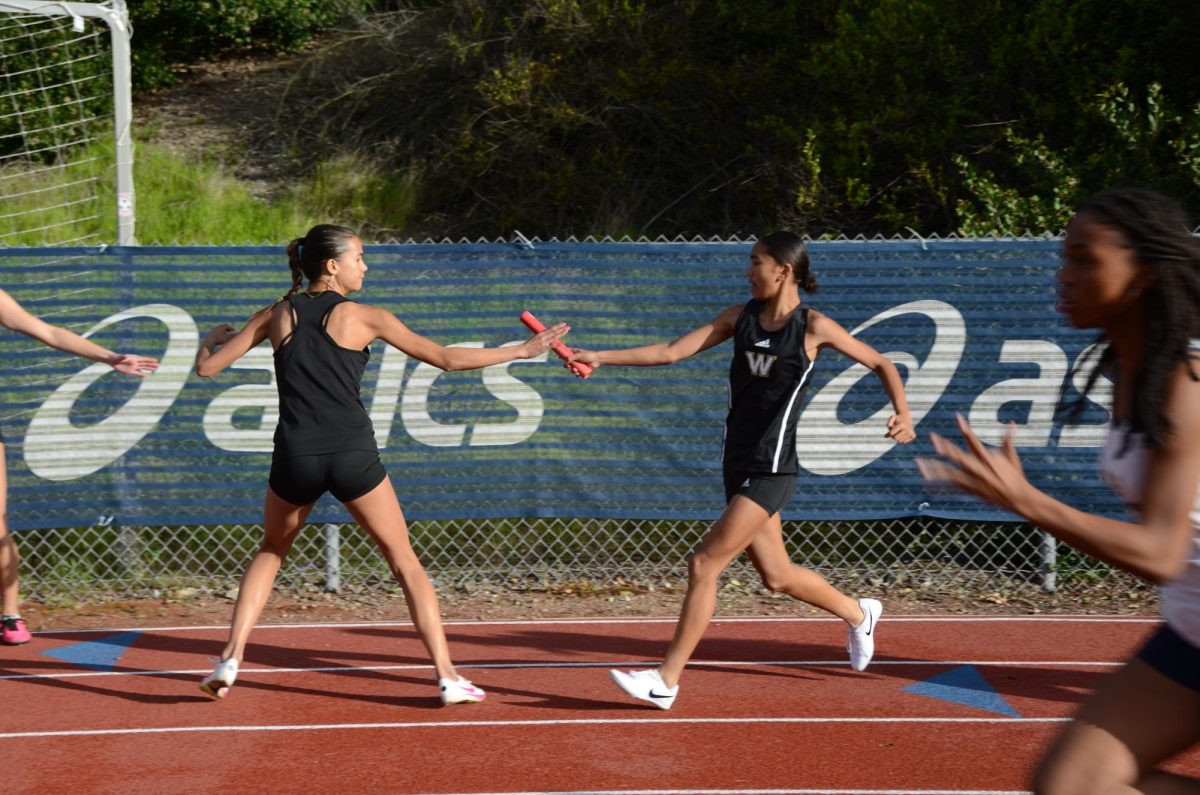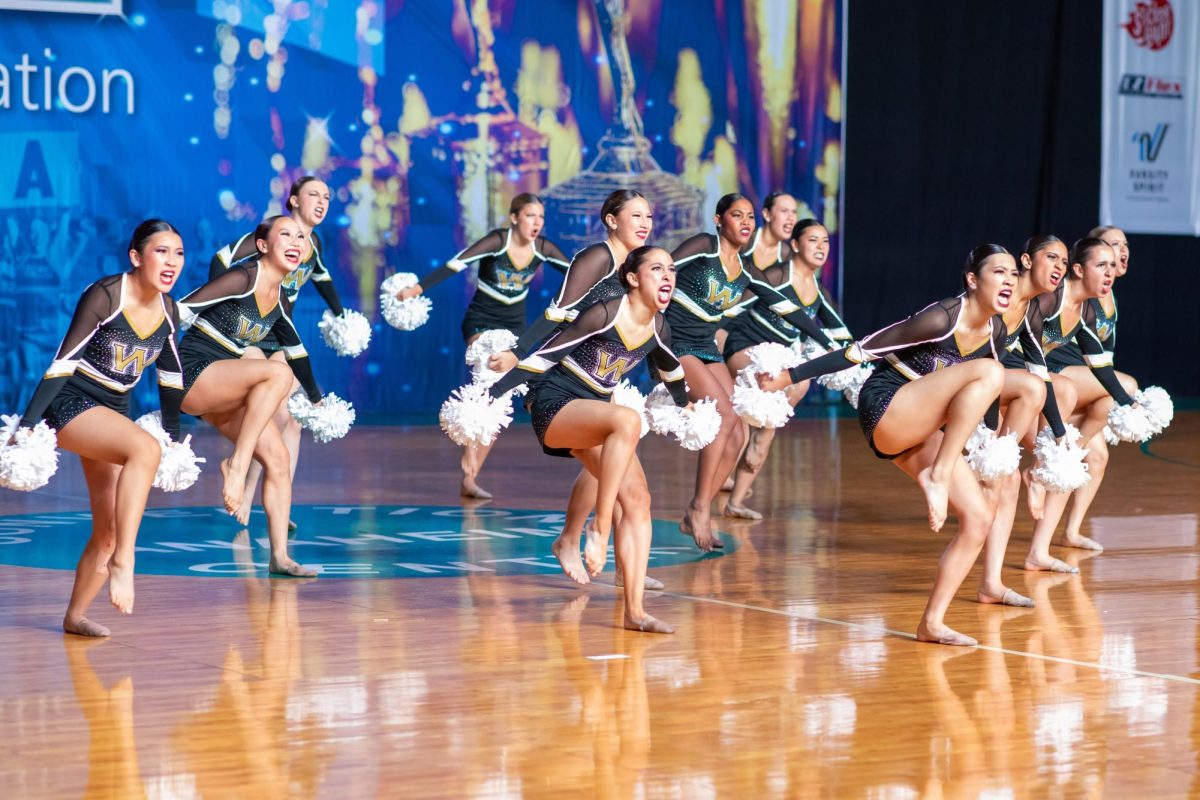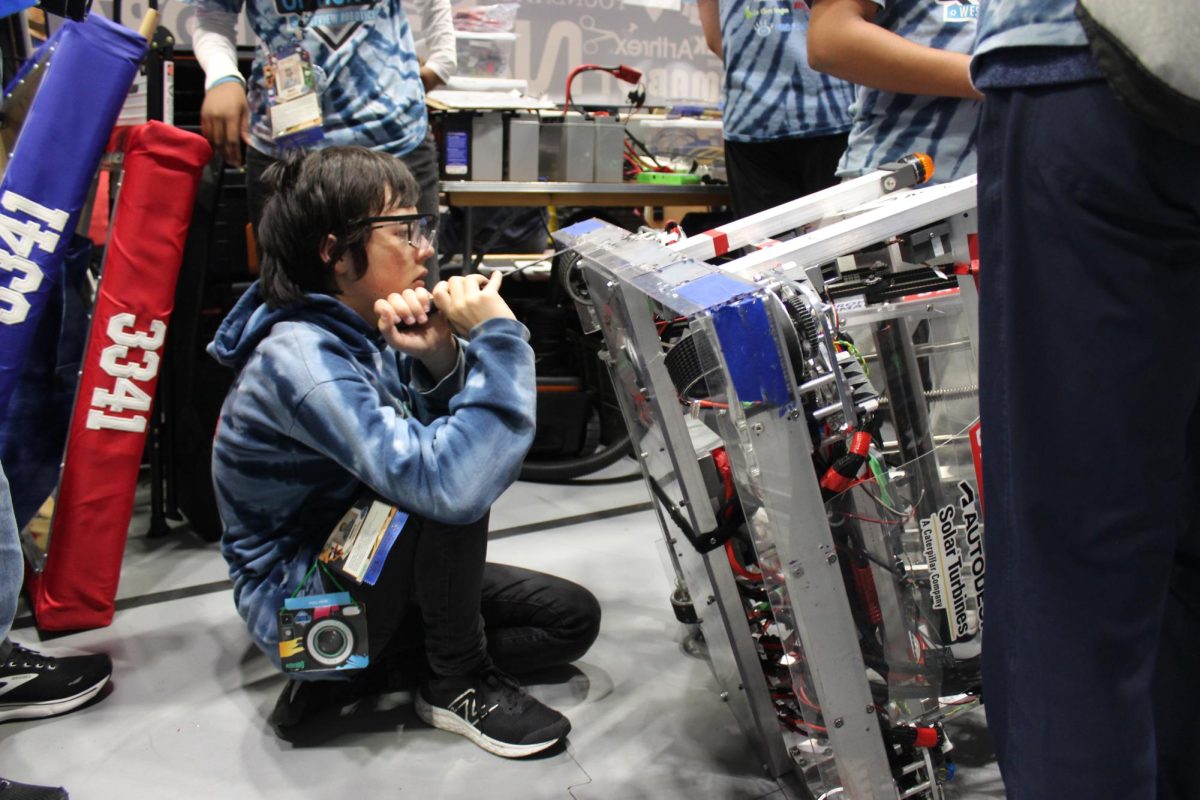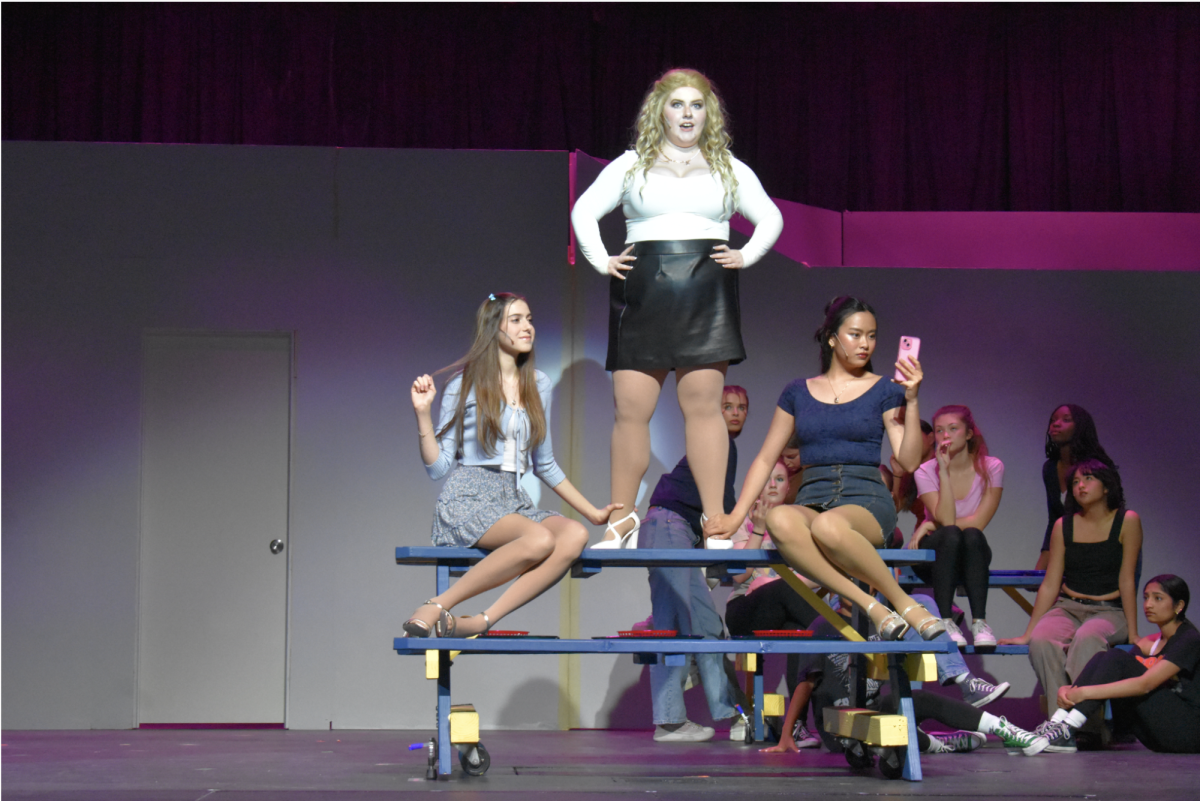Shaking off their pre-event jitters, Cameron Lu (11) and Brandon Ho (10) strolled into the room hosting Game On for the Southern California State Science Olympiad Tournament at Caltech, April 7.
They had 50 minutes to code a game in Scratch based on the scientific theme of Geology, and though Lu and Ho met a few days prior to create preliminary sketches, they still didn’t know which type of game the judges would request.
“We only knew that it could be one of six types: maze, collection, avoidance, shooting, racing, or building,” Lu said. “We felt like we had a good baseline, and were only uncertain about the building game type. Well, it was much to our dismay when we walked into the competition where it was instantly announced that the game type was building.”
Lu and Ho’s sketches for their building game were originally formed around maintaining structural integrity during earthquakes, where the player would have to fix buildings while they crashed and crumbled to the ground. As time passed, the player would have to protect more and more buildings.
“Turns out, the multi-building aspect was going to take way too long to code, so instead we managed to brainstorm on the spot [platforms] within a single building, where the player was only fixing windows on multiple floors as they were breaking apart,” Lu said.
Lu and Ho barely finished coding as the clock counted down to zero. But they had no time to reflect on what had just happened, no time to relax. They split up, rushing to their next events.
“Going into the event[s], I was definitely nervous, and spent most of the time before studying up on relevant materials [such as cloud type wavelength patterns and geological cycles],” Lu said. “However, once I actually got into the event[s], nervousness about whether or not I knew the material kind of disappeared and was replaced by a need to race against the clock.”
Lu said that time was his biggest hurdle. Though he tried his best to prepare for the questions he was asked, he found that time was a factor he didn’t account for.
“The testing period went by much faster than expected,” he said. “Two of my events left me and my partner scrambling to fit in what we could in the final minutes, and I felt afterwards that if I had had a few more minutes, some of the more glaring issues during the events could have been resolved.”
According to Lu, these issues included incomplete post-game results, minimal graphics and missing components on the scoring rubric for Game On.
“For example, our game only told you if you won or lost, and didn’t give you the score you got or an option to return to the starting menu, as that was one of the last aspects of the game we worked on,” he said.
Lu ultimately placed 12th in Dynamic Planet and 16th in Game On and Remote Sensing.
“I’m not unhappy with what I got, but I feel like I could have been better prepared by getting a better feel of the time slot allowed for us to compete in each event, and overall just a better understanding of the finer details of each event,” he said.
These sentiments of being better prepared were shared by many of his teammates, including Jasmine Duong (11), who competed in four events and medalled in one.
Though she and her partners spent on average, two hours a week per event building and studying together, she said she was stressed about the mere month between the regional and state competitions.
“I felt less prepared than usual,” she said. “I was slightly nervous about how Westview would do compared to the other schools.”
These fears would usually be soothed by upperclassmen and their confidence from experience, according to President Allison Bao (12), but because most of the seniors didn’t return to compete this year, the state team had trouble trying to compensate for this loss.
“The team is really young, and state is always hard,” Bao said. “With that little experience, I was pretty sure we weren’t going to do as well [as the] past.”
The state team was mainly chosen from the regional varsity team, but some members were substituted in from the other five teams based on their strong performance.
“We did our best to pick people we knew would put in a lot of effort,” Bao said. “At the very least, even without experience, they had the results and basic skills and intelligence needed to perform. It’s difficult because a lot of people from other schools have been doing the same/similar events for four years, so they know what to expect.”
Michael Wu (9) competed in Anatomy, Astronomy, and Thermodynamics, the first two being study events, and the third being a mix between a building and studying event.
“I felt hesitant going into the competition because this was my first time attending a Division C or high school state tournament, so I didn’t know how hard the tests would be,” Wu said.
He said he felt particularly worried about Thermodynamics since he and his partner had to build a thermally isolated box that would conserve as much heat as possible. This box would be tested on the day of the competition and was integral to getting a good score in the event.
“My partner and I were worried that our prediction of how much heat would be lost would be off because the conditions at the testing area were different than where we collected out data for predictions,” Wu said. “For example, room temperature was different and we weren’t sure how to factor that into our prediction.”
However, they were relieved to find that their prediction had only been 1.5 degrees off from the actual value.
Westview placed 13th out of 31 schools, and though many team members expressed disappointment regarding their overall performance, all agreed that they would study even harder and put in longer hours in preparation for future competitions.
“Part of it comes down to hoping that with experience, the team will be more mature and learn everything needed to succeed more,” Bao said. “Otherwise, I think more regular checks on the learning progress of members would be nice, because we had issues with people only studying last minute or not at all.”
State had been a learning experience—the team didn’t quite know what to expect this year, according to Wu. Still, he and Bao said they are confident that Westview will do much better next year.
“I think for the team, it was a good start, and we were able to see which members on the team will be good performers for future years,” Bao said.





